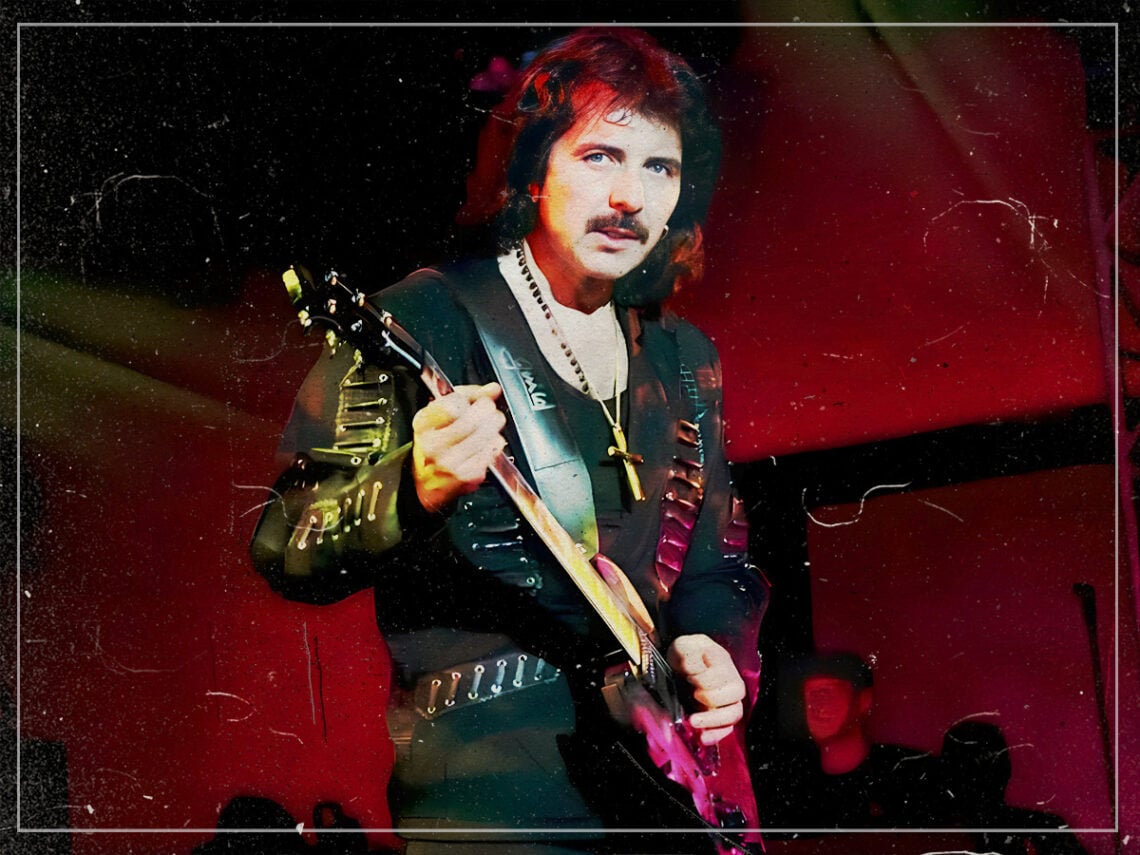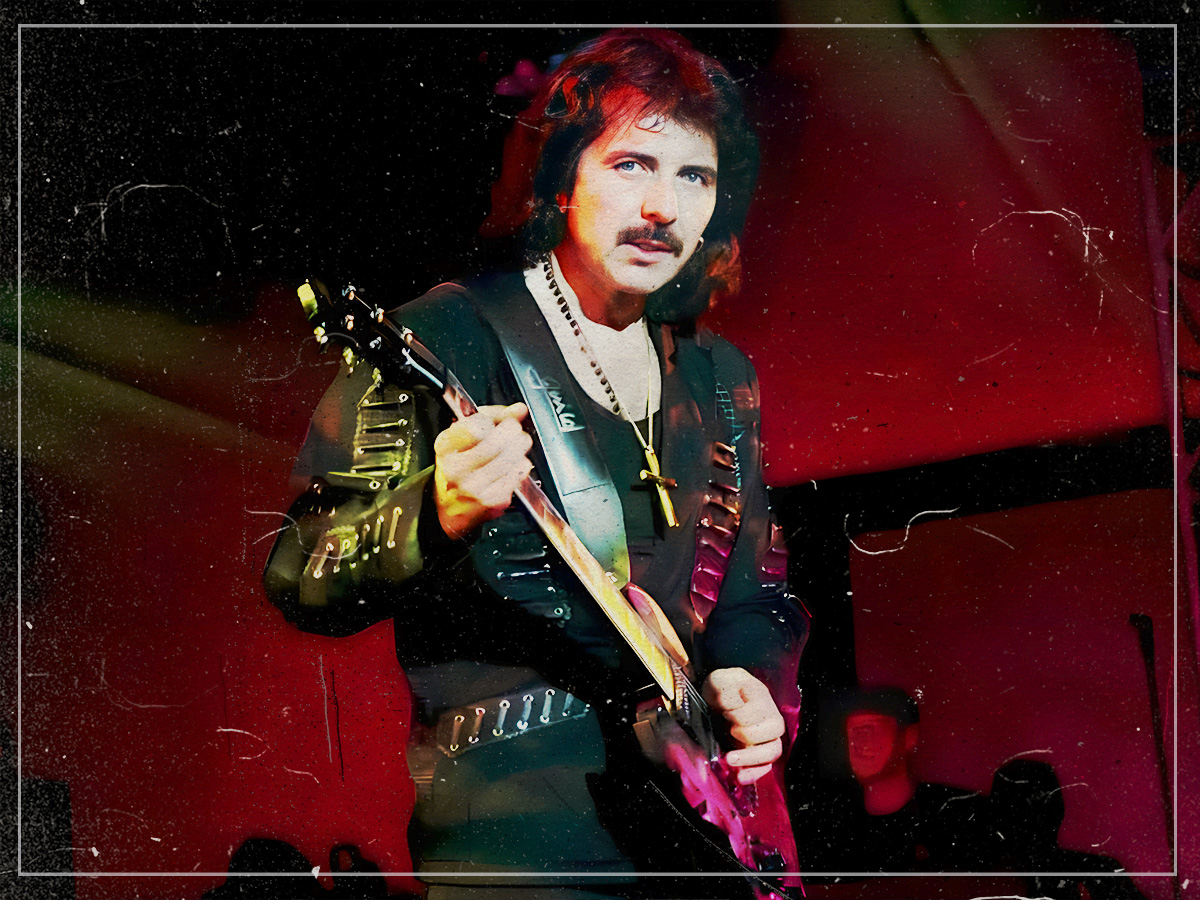
(Credits: Far Out / Alamy)
Sat 1 November 2025 12:00, UK
Right from the band’s inception, Black Sabbath was never about flair or about showing off technical prowess; it was simply about pushing rock music to an extreme in ways that others hadn’t had the bravery to attempt previously.
That doesn’t mean that members weren’t flexing their abilities at every opportunity, and it certainly doesn’t mean that they weren’t blessed with an embarrassment of talent from the get-go. The rhythm section of Geezer Butler and Bill Ward helped define the deathly dirges of heavy metal with pounding bass and drums, respectively, and frontman Ozzy Osbourne was distinct from other vocalists of the period with his guttural wails, but arguably the biggest showman of the whole group was guitarist Tony Iommi.
Innovative, heavy, and able to drop a rip-roaring solo on command, Iommi was perhaps the element of the group who produced the greatest amount of imitators, with so many other budding axe-wielders in the 1970s looking up to him as the basis for their own styles, which they’d bring to later incarnations of metal. However, as much as it may not have been rooted in a desire to showboat, Iommi himself felt as though it would later reach a point where his approach to soloing became excessive.
While he was appearing as a guest on Eddie Trunk’s radio show on Sirius XM in 2023, the guitarist would reveal that, in retrospect, he had taken things too far when it came to giving himself an opportunity to stand in the spotlight. Because he was seen as an innovator in his field, he didn’t have anyone else to base himself upon, and it wasn’t until he started noticing other players begin to mimic his style that he realised he’d been overplaying all along.
“Since the ‘70s, I’d always played a solo,” Iommi argued. “I mean, yes, I got carried away a bit too long sometimes. Listening back to things, you think, ’Bloody hell! That was a bit over the top. Too long.’ But you just sort of get taken over with it, and it doesn’t seem as long as it is. And we had done it from the ‘70s. It was the thing. Everybody done guitar solos and drum solos in the ‘70s. That was what we did, and just never changed. We went on and on and on, and always done that.”
Even though he tried to justify his reasoning for playing in an excessive manner, he would later concede that those around him essentially served as enablers who simply allowed him to do this rather than telling him when enough is enough. In particular, he looked towards Ronnie James Dio, who spent some time as the replacement for Osbourne during the late ‘70s and ‘80s, as being the main person who afforded him the space to perform in such an exuberant fashion.
While he may cringe at the idea now, he relished the fact that Dio actively encouraged him at the time, especially on their 1983 live album, Live Evil. “Ronnie, he’d sort of say, ‘Play a longer solo, play this,’” Iommi continued. “It was good to hear that instead of, ‘Oh, don’t play a solo!’ It was good to be encouraged that way, and we would do that with each other.”
It may seem excessive to him now, but there’s no denying that it was exactly what people wanted to hear at the time, and it’s what helped Iommi become the guitar hero he’s regarded as today.
Related Topics

